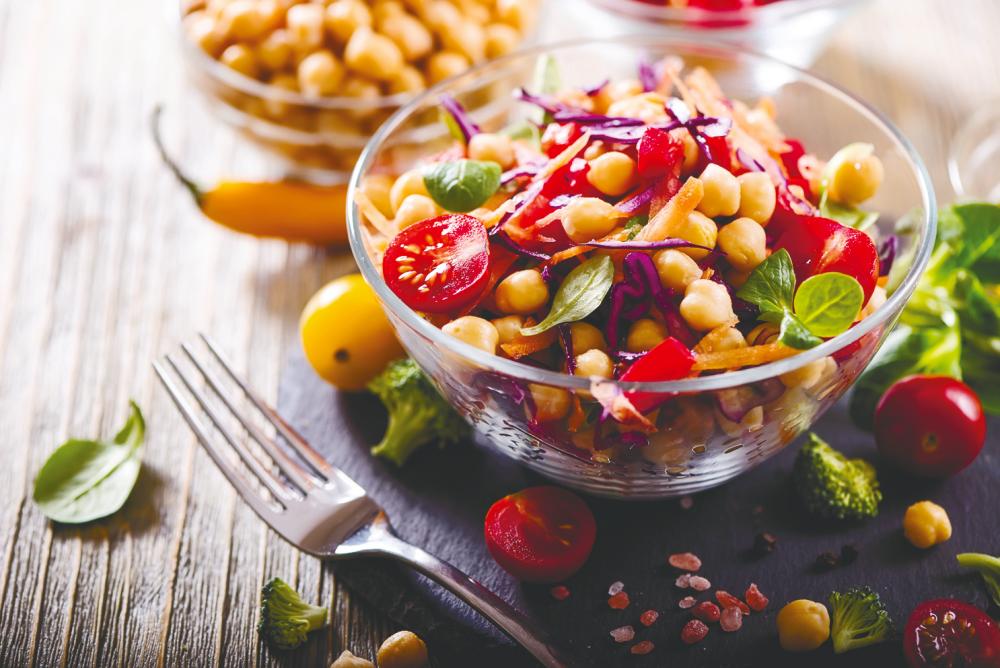MALAYSIANS are known for our love of food, and there is certainly no limit to the varieties of cuisine available for us to consume.
But as the world moves towards a more health-conscious mindset, one particular food trend has many Malaysians wondering – is it possible to adopt a vegan diet here in Malaysia? Surprisingly, the answer is a resounding yes.
In 2017, Malaysia was named the third most friendly country for vegetarians in the world, and the number of people who practice veganism – a more mindful way of eating – is steadily growing.
While both a vegetarian diet and a vegan diet involves eating only foods comprising plants, those following a vegan diet also avoid all animal products, including meat, dairy, and eggs.
Some people also avoid eating honey. For some, being vegan is a dietary choice, while for others, it is a lifestyle choice that extends beyond food.
People also choose veganism because of the environmental impact of animal agriculture. A 2010 UN report found that animal agriculture contributes to 65% of global nitrous oxide emissions, 35-40% of methane emissions, and 9% of carbon dioxide emissions - the three greenhouse gasses that have been blamed for climate change.
What is a vegan diet?
Vegan diets tend to include plenty of fruits, vegetables, beans, nuts, and seeds. Eating a variety of these foods will provide a wide range of important vitamins, minerals, healthy fans and protein.
For a vegan diet, you will need to avoid:
0Meat and poultry: Beef, lamb, pork, veal, organ meat, wild meat, chicken, turkey, goose, duck, quail.
0Fish and seafood: All types of fish, anchovies, shrimp, squid, scallops, calamari, mussels, crab, lobster.
0Dairy: Milk, yogurt, cheese, butter, cream, ice cream.
0Eggs: From chickens, ducks, fish.
0Bee products: Honey, bee pollen, royal jelly.
0Animal-based ingredients: Whey, casein, lactose, egg white albumen, gelatin, cochineal or carmine, isinglass, shellac, L-cysteine, animal-derived vitamin D3 and fish-derived omega-3 fatty acids.
Avoiding animal products doesn’t limit you to whole grains, veggies and tofu alone. You can replace dairy products with plant milks, scrambled eggs with scrambled tofu, honey with plant-based sweeteners like maple syrup, and raw eggs with flax or chia seeds.
You can also choose from an ever-growing selection of ready-made vegan products, including vegan meats, fortified plant milks, vegan cheeses, and desserts. However, do take note that these highly processed products may be loaded with additives, oils, and artificial ingredients.
Health benefits of a vegan lifestyle
A vegan diet helps combat obesity in all age groups. Vegans tend to have a lower body mass index (BMI); they are less prone to obesity when compared to vegetarians and non-vegetarians.
The reason behind this significantly lowered weight gain in vegans can be attributed to higher fibre and lower animal protein intake.
Vegans also tend to have reasonably lower levels of blood pressure and LDL cholesterol, along with healthy levels of blood lipids. All of these factors lead to significantly better cardiovascular health.
Not only that, there have been studies that suggest that a low-fat vegan diet may help protect against cancer that may be linked to insulin resistance such as prostate, colon and breast cancer.
Things to consider
A vegan diet removes some sources of nutrients from the diet, so people need to plan their meals carefully to avoid nutritional deficiencies.
Certain specialised foods and dietary supplements can help meet your daily requirements. You may also wish to talk to a doctor or dietician ahead of adopting a vegan diet, especially if you have existing health conditions.
Whatever your reasons for choosing to adopt a vegan diet, we can all agree that it can result in numerous benefits for our health and wellbeing, and is also good for the planet in the long run.














